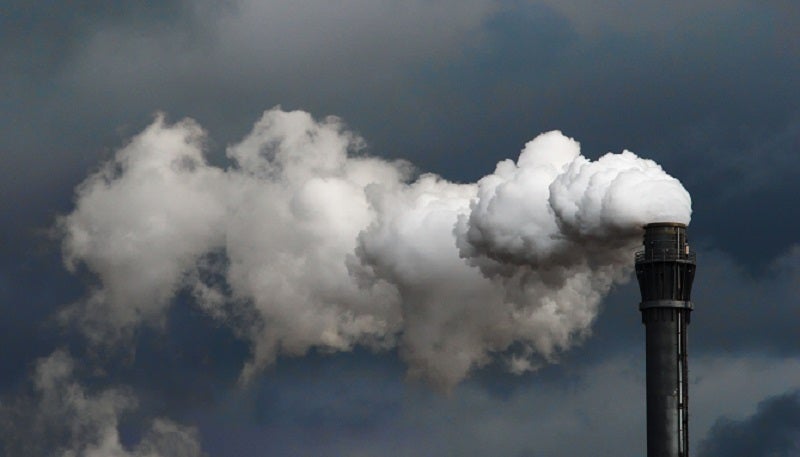
The UK’s total carbon emissions have declined by 37% from 600 million tonnes in 1990 to 373 million tonnes in 2017, according to statistics from the UK Department for Business, Energy and Industrial Strategy (DBEIS).
This is an increase on initial estimates, which suggested that the total CO2 would be at 366.9 million tonnes.
Compiled by the UK Statistics Authority, the report on carbon emissions in the UK in 2017 shows that total greenhouse gas emissions stood at 460 million tonnes for 2017, a 3% reduction from 2016 and 42% from 1990.
According to the report, transport was the sector with the greatest emissions, forming 27% of the UK’s total emissions, followed by energy supply (24%), business (17%) and residential (15%).
Emissions were down across all sectors. Energy supply had one of the largest reductions in emissions, with a total decline of 60% since 1990. Transport was the smallest, with a 2% decline since 1990.
Climate data website Carbon Brief suggested three major reasons for the decline. Based on government estimates, Carbon Brief said an increase in renewables and gas as part of the UK’s electricity mix at the expense of coal accounted for 36% of the emissions reduction in 2017. A further 31% was due to reduced fuel consumption by business and industry, and a decrease in electricity use in industrial and residential sectors accounted for another 18%. As Carbon Brief also noted, since 2007 CO2 reductions have not been offset by CO2 in imported goods.

US Tariffs are shifting - will you react or anticipate?
Don’t let policy changes catch you off guard. Stay proactive with real-time data and expert analysis.
By GlobalDataA government spokesperson said: “We have a proven track record in tackling climate change – cutting emissions by more than 40 per cent since 1990 and overachieving against our 2013-17 targets for emission reduction.
“We’ve made significant progress in cleaning up the power and waste sectors while scaling up our low-carbon electricity to record highs. We want to go even further, which is why we recently set out plans to significantly cut emissions from heavy industry, and we’re driving £6 billion into upgrading the efficiency of lower income and vulnerable households over the next ten years.”
DBEIS will publish an estimate for 2018 emissions in March this year.



